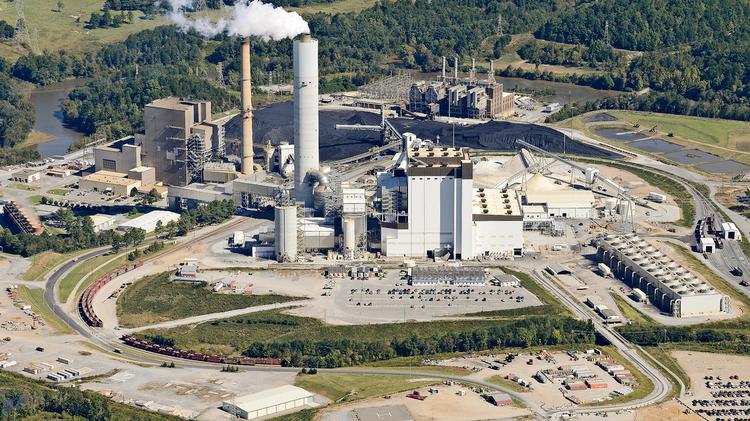
N.C. Utilities Commission Denies Duke Energy’s Application for Third Unit
N.C. Utilities Commission Denies Duke Energy’s Application for Third Unit

Asheville Beyond Coal activists protesting the coal-fired power plant during a float on Lake Julian. The power plant produces CO2, SO2 and coal ash which pollutes the French Broad River.
On February 29, the North Carolina Utilities Commission handed down its decision on Duke Energy’s “Western Carolinas Modernization Project” giving Duke the go-ahead to construct two 280 megawatt natural gas combined cycle units, but rejecting a controversial third 186 MW “peaking” unit.
The two new natural gas units will replace the existing 379 MW coal plant when it retires in 2020. Duke had also sought approval of a third “peaking unit” despite having publicly stated that the unit would not be needed until 2023 and that company would work to avoid having to construct it by partnering with local communities, investing in more renewable infrastructure and expanding access to energy efficiency programs. By denying this part of the application, the Commission was respecting the recommendation of its Public Staff and calls from the public.
MountainTrue and the Sierra Club, represented by the Southern Environmental Law Center, were intervenors in the proceedings before the Utilities Commission. We provided the commission with expert analysis conducted by Dick Hahn, a senior executive in the energy industry with over 40 years of technical experience, who determined that Duke’s plan was too big, too expensive and unjustified. We asked the commission to reject the application and to call on Duke to come up with a better plan, one that would save ratepayers money, be less reliant on fossil fuels and help create new green energy jobs. Short of that, we called for the rejection of the third “peaking” unit.
The Commission’s decision falls short of a complete rejection. The full decision is expected to be released in the coming weeks, and, at that time, MountainTrue and the Sierra Club will review our options with our legal counsel and take the appropriate action.
This outcome is not perfect; we can’t ignore the destructive effects of methane and natural gas on our global climate. However, the denial of Duke Energy’s application for the third “peaking” unit by the Utilities Commission should still be seen as a victory for Western North Carolina. Duke Energy’s “Western Carolinas Modernization Project” was a direct result of a years-long campaign to shut down the coal-fired power plant on Lake Julian and to clean up its coal ash ponds. Thousands of MountainTrue and Sierra Club members made their voices heard, took action and won. Then when Duke put forth the first version of their modernization plan, our members took action again and helped defeat the new massive transmission line that Duke proposed to build by clear-cutting a path through the farms, forests and communities of Henderson, Polk and Transylvania Counties.

Face painting at the Protect Our Land Picnic in Hendersonville. Residents rallied in opposition to a transmission line that would have cut through the forests, farms and communities of Henderson, Polk and Transylvania counties and a new substation proposed for Campobello, S.C..
We’ve also secured from Duke, a promise to build 15 megawatts of new solar power infrastructure and 5 megawatts of cutting-edge industrial battery storage. The company has committed to working with the City of Asheville through the city’s Clean Energy Framework to help meet future demand through greater investment in renewables and expanded energy efficiency programs – with the express intent of avoiding the need for a third natural-gas fired peaking unit in the future.
Time and again, our communities have come together to oppose dirty coal, toxic waste, destruction of our natural heritage and beautiful mountain vistas. Because of that hard work, we’ve won a future where coal ash no longer pollutes the French Broad River, where smokestacks no longer spew sulfur dioxide into the air that we breathe, and where Duke has to respond to the concerns of our residents.
For that, MountainTrue thanks you for your ongoing support and dedication to protecting the places we share.


 New time and place!
New time and place!